Rheumatology Fellowship
Training the future clinical and academic leaders in rheumatology.
Juliet Aizer, MD, MPH, Program Director
Genna Braverman, MD, MS, Associate Program Director
The mission of the Hospital for Special Surgery Rheumatology Fellowship Program is to train the future clinical and academic leaders in rheumatology by providing rigorous clinical teaching and experiences, fostering habits of lifelong learning, and closely mentoring fellow research projects and career planning.
The HSS Difference
Advancing rheumatology research, care and education is central to our institution.
HSS is the world’s leading academic medical center focused on musculoskeletal health. Our institution’s purpose is to help people get back to what they need and love to do better than any other place in the world. Our mission is to provide the highest quality patient care, improve mobility and enhance the quality of life for all, and to advance the science of orthopedic surgery, rheumatology and their related disciplines through research and education. Our vision is to lead the world as the most innovative source of medical care, the premier research institution and the most trusted educator in the fields of orthopedics, rheumatology and their related disciplines.
We designed a program to train future leaders in the field of rheumatology.
Our focus at HSS, combined with our relationships with Weill Cornell Medicine, NewYork-Presbyterian (NYP), Memorial Sloan Kettering Cancer Center (MSKCC), and The Rockefeller University, provides unique opportunities for rheumatology fellows. Our faculty have unparalleled expertise in research, clinical rheumatology, and medical education, and offer outstanding learning and mentorship opportunities. The HSS three-year rheumatology fellowship program is designed to not only ensure competence, but also to provide individualized experiences to support each fellow’s professional development.
HSS is committed to providing high-quality care and skilled, compassionate, reliable service to our community in a safe and healing environment. We value diversity and inclusion, excellence, gratitude, innovation, passion, and teamwork.
Our Institution
Founded in 1863, HSS is the oldest existing orthopedic hospital in the United States. The rheumatology fellowship was established in 1944, and in 1949, HSS entered an agreement to provide orthopedic and rheumatologic care for New York Hospital (now NewYork-Presbyterian) and Cornell University Medical College. Every physician at HSS is on the faculty of Weill Cornell. This academic relationship is central to HSS’s mission to provide highest quality patient care by, in part, advancing the science of rheumatology through research and education. The HSS Academy of Medical Educators, established in 2011, supports innovation and professional development of rheumatologists and trainees interested in medical education.
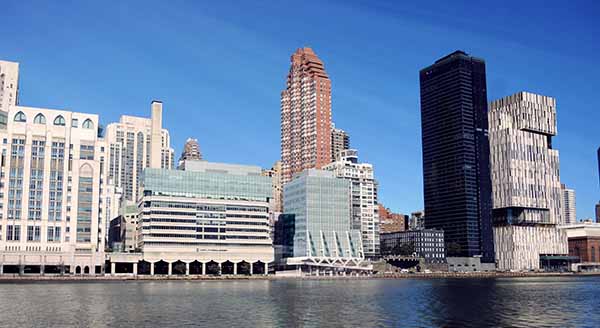
Our rheumatologists are leaders in the field who have contributed to key scientific discoveries and innovations that inform best practice. We work closely with our colleagues in pediatric rheumatology, who are themselves national leaders. HSS also boasts the highest caliber orthopedists, physiatrists and sports medicine physicians, musculoskeletal radiologists, neuromuscular neurologists, and endocrinologists who are leading clinical and research voices in metabolic bone diseases. Furthermore, we have nationally recognized patient outreach programs led by award-winning nurses and social workers.
Our fellows care for outpatients with rheumatic and musculoskeletal disease in the context of this multidisciplinary and interprofessional excellence at HSS. In addition, our fellows benefit from rich educational and inpatient clinical experiences at NewYork-Presbyterian (NYP)/Weill Cornell Medical Center and Memorial Sloan Kettering Cancer Center (MSKCC). Close clinical and research collaborations with specialists at NYPH Cornell, MSKCC, and The Rockefeller University are central components of our training program.

NewYork-Presbyterian (NYP) Cornell, consistently named one of the top hospitals in the country, is an 800-bed tertiary care medical center with an ethnically and socioeconomically diverse patient population. NYP has world-renowned experts across medical specialties, making the rheumatology consult service at NYP a rich and rewarding learning environment for our fellows.
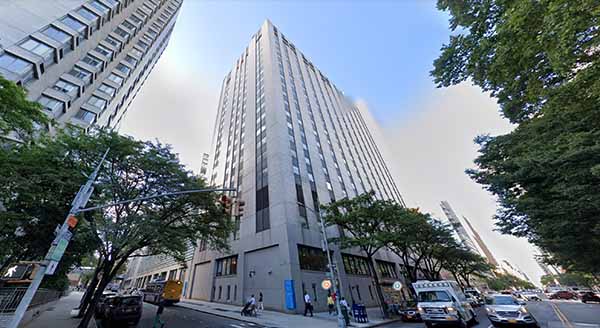
Memorial Sloan Kettering Cancer Center is the premier institution for cancer care in the country, where the leading edge of cancer research happens. They have a 500-bed hospital where our fellows get to see up close paraneoplastic syndromes, inflammatory myopathies, and rheumatic adverse events from cancer immunotherapy. MSKCC also provides a venue for fellows interested in basic science and translational research to engage with some of the leaders in the field.
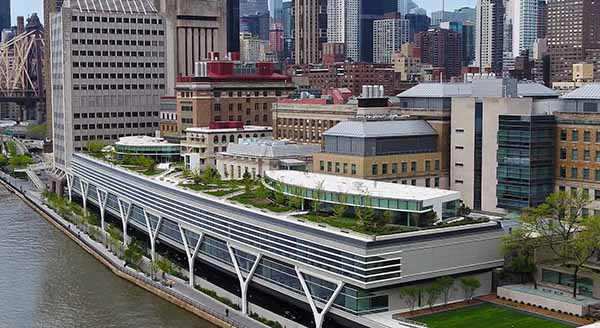
The Rockefeller University is the first biomedical research center in the US, established in 1906. It is a bedrock of scientific discovery. Rockefeller scientists have won a collective 26 Nobel Prizes and 25 Lasker Awards. Fellows interested in basic science research can have opportunities to work with scientists of the highest caliber.
Our Faculty
We are the largest rheumatology division in the country, with more than 40 faculty members with diverse research and clinical interests. Our faculty have been truly transformational in the field, with innumerable contributions to the scientific and clinical aspects of patient care. They have expertise in rheumatoid arthritis, spondyloarthritis, lupus, antiphospholipid antibody syndrome, vasculitis, scleroderma, myositis, checkpoint inhibitor-induced arthritis, and orthopedic outcomes.
Our Program Director, Juliet Aizer, MD, MPH, and our Associate Program Director, Genna Braverman, MD, MS, are fully invested in providing the best possible learning environment for our rheumatology fellows.
Some key discoveries and contributions to the field from HSS faculty:
- Identification of aggregated gamma globulin as the target of rheumatoid factor
- Demonstration of the specificity of anti-DNA antibodies for a diagnosis of SLE
- Elucidation of the relationship between dsDNA levels and disease activity in lupus
- Discovery of the causal relationship between Hepatitis B infection and polyarteritis nodosa
- Discovery that ACE inhibition is effective treatment for scleroderma renal crisis
- Definition of critical antibody profiles in patients with antiphospholipid antibody syndrome
- Definition of neuropsychiatric lupus
- Elucidation of the role of Interferon in lupus
- Demonstration that IL6 blockade can be used to treat polymyalgia rheumatica
- Development of national guidelines for reproductive health in rheumatic disease patients
- Development of national guidelines for Glucocorticoid-Induced Osteoporosis
- Development of national guidelines for perioperative management of antirheumatic medications in patients undergoing arthroplasty
- Development of criteria for antiphospholipid antibody syndrome, and establishment of the multinational APS Action Network
- Development of national guidelines for vaccinations in rheumatic disease patients
- Discovery of PRIME cells that signal RA flares
Our Approach to Education
We recently expanded to welcome four first-year fellows into our program each year. We cultivate a collaborative culture and appreciate the important perspectives each of the members of our community shares. We value intellectual curiosity, collegiality, creativity, diverse perspectives, humility, integrity, teamwork, and connection, and foster these in the formal and informal components of our program. We apply various educational frameworks including experiential, self-directed, social, cognitive, critical, and developmental approaches. These help our fellows develop a thorough understanding of rheumatology along with skills and attitudes that will help them provide excellent clinical care and advance our field as rheumatologists.
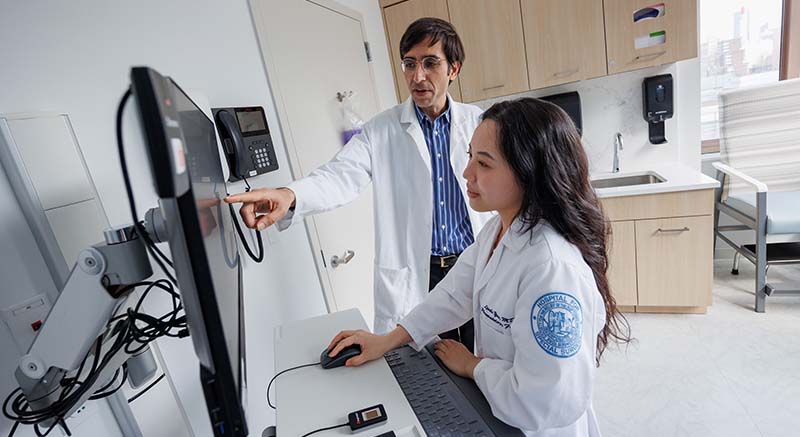
Our Clinical Experiences
Our fellowship offers extensive clinical experience in the outpatient rheumatology clinics at HSS and the inpatient consultative service at NewYork-Presbyterian Hospital (NYPH-Cornell) and Memorial Sloan Kettering Cancer Center (MSKCC).
Outpatient Experiences
Each fellow sees outpatients in rheumatology continuity clinics at HSS three to four half-days per week when they are on outpatient blocks. One clinic session is focused on the care of patients with inflammatory arthritis, another to systemic autoimmune connective tissue diseases including lupus, antiphospholipid syndrome, scleroderma, vasculitis and myositis. For each of these clinics, fellows work with faculty preceptors who have the relevant expertise, allowing fellows to learn from expert clinicians how to best evaluate patients presenting with the wide range of conditions seen in outpatient rheumatology practices. Fellows take responsibility for these patients and care for them throughout fellowship. Fellows also gain experience during their outpatient blocks in specialty clinics with faculty in rheumatology as well as in other divisions and departments relevant to rheumatology. Fellows do not have inpatient consult duties while on outpatient blocks.
Inpatient Experiences
Each fellow sees roughly 1-3 new consults per day at NYPH and MSKCC when they are on an inpatient block. There are two fellows on inpatient blocks at a time. Internal medicine residents from NYP and students from Weill Cornell join during electives. Patients seen on the consult service have a wide range of diseases including lupus, vasculitis, antiphospholipid syndrome, myositis, crystal-arthritis, and immune-therapy related autoimmunity, among others. Diverse ethnicities, nationalities and socioeconomic contexts are represented in our patient population. Patients seen on the consult service frequently follow up with our fellows afterwards for ongoing rheumatologic care.
Our Research Opportunities
Opportunities for fellow research truly span the full range of disciplines and topics, from basic and translational work on human samples and model organisms, to clinical research examining patient data and outcomes, and quality improvement. Examples of recent past fellowship research projects include molecular studies of synovial inflammation in RA, murine models of lupus and Sjogren’s, studies of reproductive issues in rheumatic disease patients, COVID-19 outcomes in rheumatic disease, and clinical and translational studies of antiphospholipid syndrome. Fellows have been very successful in presenting in high-profile meetings, publishing their results, and achieving early-career grant support.
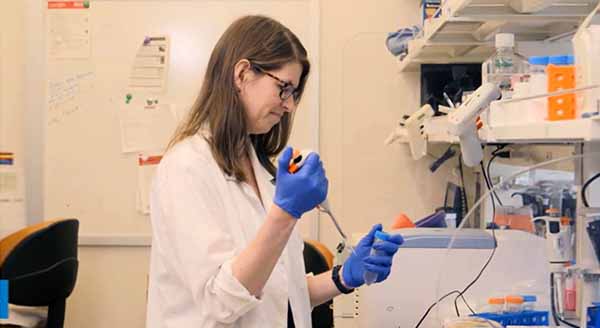
Centers of Excellence in Rheumatology at HSS
The Lupus and APS Center of Excellence; the Inflammatory Arthritis Center of Excellence; and the Integrated Rheumatology-Orthopedics Center of Excellence offer robust registries and other resources for fellow research. The HSS Research Institute also offers trainees a chance to engage in basic science research, exploring through genomics and precision medicine the biology of tissue degeneration and musculoskeletal integrity, autoimmunity, and inflammation.
Program Structure
Our fellowship is a three-year program. The first two years are ACGME-accredited and result in eligibility for subspecialty board certification in rheumatology. The third year is fully funded and supports the development of each fellow’s expertise and scholarly work. The program begins July 1.
First Year
The first year is predominantly clinical, providing fellows with experiences across the breadth of inpatient and outpatient rheumatology to inform their practice and career interests. First year fellows spend roughly twenty weeks on inpatient blocks, covering the consult service. On separate outpatient blocks, first year fellows have three to four half-day sessions of their outpatient continuity clinic and roughly one half-day session per week gaining clinical exposure to subspecialty areas within rheumatology, related disciplines, and allied professions. To support exploration of career interests, each fellow meets with the program director and associate program director regularly from the start of their first year in our program, and together they establish plans for subsequent experiences directed by their interests.
Second and Third Years
In their second and third years, fellows spend four weeks on the consult service and roughly three half-day sessions per week in their outpatient continuity clinic (one half-day session for fellows on the ABIM Medical Research Track). Senior fellows continue to gain experience in specialty clinics. This allows second- and third-year fellows to devote 60% of their effort to scholarly work (80% for fellows in the ABIM Medical Research Track, which also includes a Fourth Year of fellowship similar in structure to the Second and Third Years). Fellows’ scholarly work can be bench, translational, or clinical research, health science research, quality improvement research, or education research. Fellows meet regularly with the program director and associate program director, their dedicated research mentorship committees, and their primary research mentor, who shepherds them to successful completion of their research projects. Fellows are expected to disseminate their scholarship through presentations and publications.
Conferences and Courses
Our conferences are designed to address the broad learning needs of our fellows, in formats that support learning.
- Introduction to Clinical Rheumatology: This series of sessions led by various HSS faculty members in the summer covers the most high-yield topics to prepare first year fellows for their new roles fielding rheumatology consults and caring for patients in the rheumatology clinic.
- Musculoskeletal Medicine: Specialists from physiatry and orthopedics meet with the rheumatology fellows in a series of sessions held over the summer to review common musculoskeletal issues in each body region, including how to identify key clinical findings and direct management. These sessions are reinforced subsequently through observation of fellows’ performance of the physical exam and application of clinical reasoning in rheumatology clinic and clinic conferences.
- Arthrocentesis Skill Development: Jessica Berman, MD leads cadaver-based arthrocentesis teaching sessions with feedback. These sessions provide our fellows with valuable practice prior to their first procedures on patients, and supplemental experience, advanced skill development, and teaching opportunities for fellows over the course of training.
- Paget Rounds: Stephen A. Paget, MD, Physician-in-Chief Emeritus, meets with first year adult and pediatric rheumatology fellows weekly to develop their critical thinking and clinical decision-making skills through stepwise discussions of cases in rheumatology.
- Consult Case Conference: Adult and pediatric rheumatology fellows present cases from the consult service that pose a diagnostic or therapeutic challenge or raise key points for discussion and learning. This conference engages the other fellows and faculty in a lively discussion that can include a review of relevant imaging, pathologic specimens, and/or input from specialists from fields outside rheumatology. Diagnostic and therapeutic decision making, clinical evidence, implications for health systems and future research are discussed.
- Inflammatory Arthritis Clinic Conference: Rheumatology faculty with expertise in inflammatory arthritis and musculoskeletal radiologists lead weekly conferences for our fellows. These are designed to build fellows’ diagnostic skills, understanding of clinical and research outcome measures, therapeutic decision making, and current evidence.
- Lupus and Connective Tissue Disease Clinic Conference: Our fellows have weekly conferences led by rheumatology faculty with expertise in lupus, antiphospholipid syndrome, scleroderma, vasculitis, sjogren syndrome, and myositis, social workers focused on supporting patients with these connective tissue diseases, and specialists from related fields including nephrology, dermatology, pulmonary, and pathology. These are designed to build fellows’ clinical skills, familiarity with relevant outcome measures, and ability to discuss and apply relevant clinical evidence in the care of patients with connective tissue disease.
- Critical Appraisal: Lisa Mandl, MD and Juliet Aizer, MD, MPH meet with our fellows three times per month to develop their skills for critical appraisal of the medical literature. In each session, fellows discuss a landmark or recent article from the rheumatic disease literature that illustrates key features of the various common study designs. These discussions are paired with questions with answer rationales for each study design, allowing fellows to assess their understanding and ensure any learning needs are addressed.
- Immunology: In a series of ten sessions, research faculty review and discuss the immune system with the rheumatology fellows, ensuring everyone has a solid foundation, and highlighting clinical correlates relevant to rheumatologists.
- Musculoskeletal Ultrasound: Dr. Jessica Berman, certified in musculoskeletal ultrasound by the American College of Rheumatology, leads introductory lectures coupled with hands-on sessions providing opportunities for each rheumatology fellow to obtain practice with feedback on musculoskeletal ultrasound techniques for all major joints as well as ultrasound guided procedure training.
- Metabolic Bone Disease: Experts in metabolic bone disease from various disciplines review basic bone biology, assessment of fracture risk, and approaches to skeletal health.
- Infectious Disease: Specialists in musculoskeletal and rheumatologic Infectious Disease at HSS meet with the rheumatology fellows periodically to address topics relevant to rheumatology, including presentation and management of infectious causes of arthritis and autoimmune disease, as well as approaches to preventing and treating infectious diseases in patients with rheumatic disease.
- Social Work Case Conference: Fellows meet monthly with social workers focused on caring for patients in the HSS rheumatology clinic, to discuss and address barriers to care with an interprofessional approach.
- Quality Improvement: Fellows are introduced to concepts and approaches to Quality Improvement (QI) and then apply these to real world challenges in rheumatology.
- Rheumatology Grand Rounds: Nationally and internationally recognized speakers present on topics relevant to our division weekly. Rheumatology fellows work with HSS faculty to arrange this conference and connect with invited speakers. In their second year, each fellow presents a case as part of a multidisciplinary Clinicopathologic Conference in this forum, and in their final year, each fellow presents their research.
- Rheumatology Division Journal Club: Rheumatology faculty and fellows each present articles for discussion twice per year in this weekly forum, sharing relevant context, critical appraisal, and potential applications.
- Clinical and Translational Research Workshops: Members of the rheumatology division present their research-in-progress in various conferences for discussion and suggestions.
- Enrichment Speaker Series: In these institution-wide sessions, world-renowned thought-leaders share their expertise on topics relevant to leadership, wellness, the business of medicine, and strategic decision making.
Advanced Degrees
We are committed to supporting our fellows’ career development through tailored experiences, mentorship, and opportunities for scholarship. In addition, advanced degrees and other programs can contribute to our trainees’ development of expertise that will help them advance the field in the future.
The Weill Cornell Medicine Clinical & Translational Science Center offers a Master’s degree in Clinical & Translational Investigation. This is the most common Master’s degree program for our fellows; recent graduates who completed this degree include Drs. Romy Kallas, Jonathan Thaler, Genna Braverman, April Yu, Caroline Siegel, Nilasha Ghosh, Elena Gkrouzman, Kimberly Lakin, and Sarah Lieber.
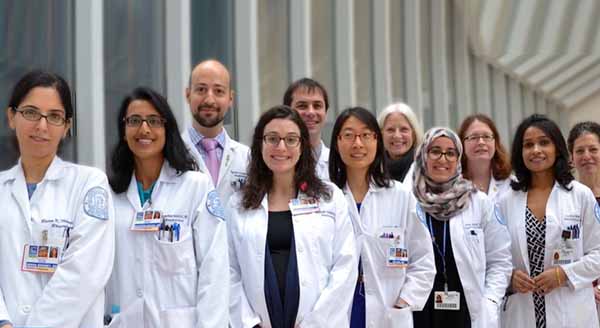
Teaching Opportunities
Fellows have various opportunities for teaching, ranging from informal opportunities with residents and medical students when they are on rheumatology rotations, to formal opportunities in various formats with medical students, residents, fellows, faculty, and patients, as well as national educational opportunities through the American College of Rheumatology. We encourage fellows to participate in teaching activities to enhance their own mastery of the material and to help others learn. We provide mentorship for interested fellows to take scholarly approaches to medical education. The HSS Academy of Medical Educators provides support for innovations in medical education.
Our Fellows
It is a privilege and a joy to work and learn with the fellows in our program. We value their perspectives and appreciate their comments about our program.
First Year Fellows
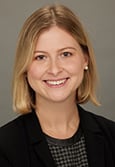
Keira Brennan, MD
Medical School: Rutgers Medical School
Residency: Montefiore Einstein
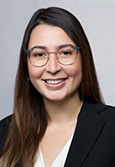
Zeynep Belce Erton, MD
Medical School: Acibadem University
Residency: SUNY Downstate
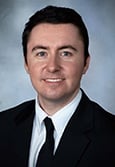
Harry Hurley, MD, PhD
Medical School: Rutgers Medical School
Residency: Montefiore Einstein

Hillary Weisleder, MD
Medical School: NY Medical College
Residency: Montefiore Einstein
Second Year Fellows

Kelvin Chan, MD, PhD
Medical School: SUNY Stony Brook
Residency: New York Presbyterian Hospital (Cornell)

Alex Luta, MD
Med School: Georgetown University
Residency: MedStar Georgetown

Marissa Savoie, MD
Medical School: UC San Francisco
Residency: Massachusetts General Hospital
Third Year Fellows

Sandhya Kannayiram, MBBS
Medical School: Madurai Medical College, Tamil Nadu, India
Residency: John Stroger Hospital of Cook County, Chicago, IL

Julia Levy, MD
Medical School: Donald and Barbara Zucker School of Medicine at Hofstra/Northwell
Residency: NYU School of Medicine, NY

Cara Murphy, MD
Medical School: Wright State University Boonshoft School of Medicine
Residency: UNC Chapel Hill, NC
Our Recent Graduates
We are proud of all the phenomenal graduates from our program. Below are the names of our recent graduates and where they have taken positions after graduation.
2025
Brandon Blau, MD – Wharton Business School, MBA anticipated 2026
Romy Kallas, MD, MS – Hospital for Special Surgery
Jonathan Thaler, MD, MS – Northwell
2024
Genna Braverman, MD, MS – Hospital for Special Surgery
Allen Y. Chen, MD, PhD – New York University
April Yu, MD, MS – U.S. Food and Drug Administration
Robert Spandorfer, MD – New York University
2023
Amit Lakhanpal, MD, PhD – Hospital for Special Surgery
Kevin Yip, MD – Wyckoff Heights Medical Center
Linda Yue, MD – Westmed Medical Group
2022
Melanie Smith, MD, PhD – Hospital for Special Surgery
Diane Zisa, MD – Columbia University
Caroline Siegel, MD, MS – Hospital for Special Surgery
2021
Nilasha Ghosh, MD, MS, RhUSMS – Hospital for Special Surgery
Sebastian Eduardo Sattui Cortes, MD, MS – University of Pittsburgh
Monica Hope Schwartzman, MD, MS – Schwartzman Rheumatology
2020
Elena Gkrouzman, MD, MS, RhMSUS – University of Massachusetts
Kim Lakin, MD, MS – Hospital for Special Surgery
Sarah Lieber, MD, MS – Hospital for Special Surgery
Salary Information
As of July 2025, rheumatology fellow salaries at HSS are as follows:
PGY 4: $115,000
PGY 5: $116,500
PGY 6: $118,500
Application Process
Physicians who will complete internal medicine training in an ACGME-accredited residency program by the start of fellowship may apply to our program. All applicants are expected to be board-eligible in internal medicine when they start in our program unless they are in the ABIM research pathway.
It is the policy of Hospital for Special Surgery to extend equal employment opportunity to all applicants regardless of race, color, religion, sex, national origin, age, marital status, sexual orientation, handicap or disability.
We participate in the National Residency Matching Program (NRMP). Applications should be submitted through the Electronic Residency Application Service (ERAS). For information, please visit the ERAS website. Members of the HSS Rheumatology Fellowship Selection Committee review all applications. Interviews are offered selectively.
If you have any questions, please contact: Flaisa Roberts, Rheumatology Fellowship Program Coordinator at 212.774.2189 or robertsf@hss.edu
Learn about the general application process at HSS.
